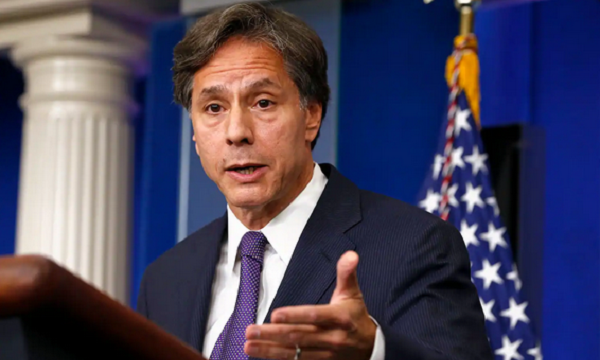Canadian doctors among ambulance crews in Israel that filled wartime gaps
At lunchtime on Friday sirens blared a warning of rocket fire near Ashdod in southern Israel, 30 kilometres from Gaza’s edge, and as people rushed for shelter, a 10-year-old girl collapsed in cardiac arrest.
An emergency medical unit arrived with life-saving treatment. One of those medics was a Canadian doctor.
Ira Price, from outside of Hamilton, Ont., is one of three Canadian physicians who arrived in Israel last week to provide emergency medical care after the Oct. 7 Hamas attack.
“We worked on the individual for such a long period of time and eventually, we’re so thankful that we were able to save a life today,” Price said afterwards.
On Sunday, the girl’s parents came to thank him and the other medics on the team he joined.
“I must say how much grateful for you, for all of you, for fighting,” the father said as his wife cried beside him. “You didn’t give up. Because of you my child is still breathing this day.”
The Canadian doctors are part of a coordinated effort during the war to bring emergency doctors to Israel to fill gaps in emergency services with Magen David Adom (MDA), Israel’s national emergency medical service, recognized as a member of the Red Cross and Red Crescent federation under the Geneva Conventions.
“I couldn’t sit down and stay home,” said Price.
“On October 7 the world witnessed a massacre of Jewish people the likes of which we haven’t seen since the Holocaust, and I never thought in my wildest nightmares that such a thing could possibly happen.”
While they are doing wartime medicine, it’s not frontline duty.
“Israel has a near universal conscription system and conscription doesn’t end when your army duty ends, you do reserve duty until you’re 45,” said Michael Schweitzer, a family doctor from Hamilton who is also volunteering with MDA in Ashdod. “In times of national crisis, army reservists are called into active duty and many of them are paramedics, which means there’s a shortage of paramedics in the system.
“We got a phone call from Magen David Adom that we were needed, and we dropped what we were doing to come and help.”
Schweitzer has done shifts with MDA six times since 2015, but this time, against a backdrop of war and interrupted by air raid sirens, it is different, even though most of the emergency calls are the same.
“This is a new situation for all of us.
“It’s been busy but with the routine stuff, life is going on behind the front. People are still getting hurt, people are still getting chest pains, people still need an ambulance to get to the hospital, and so we’re making sure that goes on as it should.”
Daniel Kollek, an emergency doctor at Joseph Brant Hospital in Burlington, Ont., outside Hamilton, said people have been extraordinarily welcoming.
“We arrived in Ashdod and initially it wasn’t clear where we were going to sleep at night, and this other medic who came in, she overheard the conversation and said ‘Here are my house keys, I’m doing the night shift, go sleep,’” Kollek said.
“I spoke to a crew that went and resuscitated a Hamas prisoner of war.
“Imagine the conflict, emotionally, they had. I asked the guy, and he said it doesn’t matter, I have a person in front of me who needs medical care and we’re going to resuscitate. And they did.”
Daniel Pollack is the deputy director of the training department for MDA. He is also a Canadian, whose mother was from Montreal and his father from Toronto before they emigrated to Israel.
“This is a very difficult time here in the country and at MDA,” said Pollack.
“MDA has lost good people who rushed into the combat zones to provide medical assistance and were killed in action while doing so. Others were injured,” he said. “One was trying to get an ambulance to reach some of the injured and he was shot and killed on the spot.”
After the area was retaken by Israeli forces, he said they found their ambulances had been damaged by Hamas to prevent them from being used to provide medical assistance.
“We’re still on the front lines and also on the home front, trying to provide any medical assistance to anyone in need. We have many Muslims, many Jews, as staff members and volunteers, Christians also. All are united to provide medical assistance.
“Our staff members did transport injured terrorists. We’ll treat them. We don’t differentiate between anyone who’s injured and needs medical attention.”
Hershel Recht, a regional director for MDA in Canada, works to contact and train medical volunteers willing to do short-term duty in Israel.
He said they had a list of eight volunteers before the recent attacks. It has since swelled to 118.
The three doctors now there will return in a few days and be replaced by others from Canada.
“We never thought there would be such a need,” Recht said. “The urgency is like nothing before.”
This article was reported by National Post
















